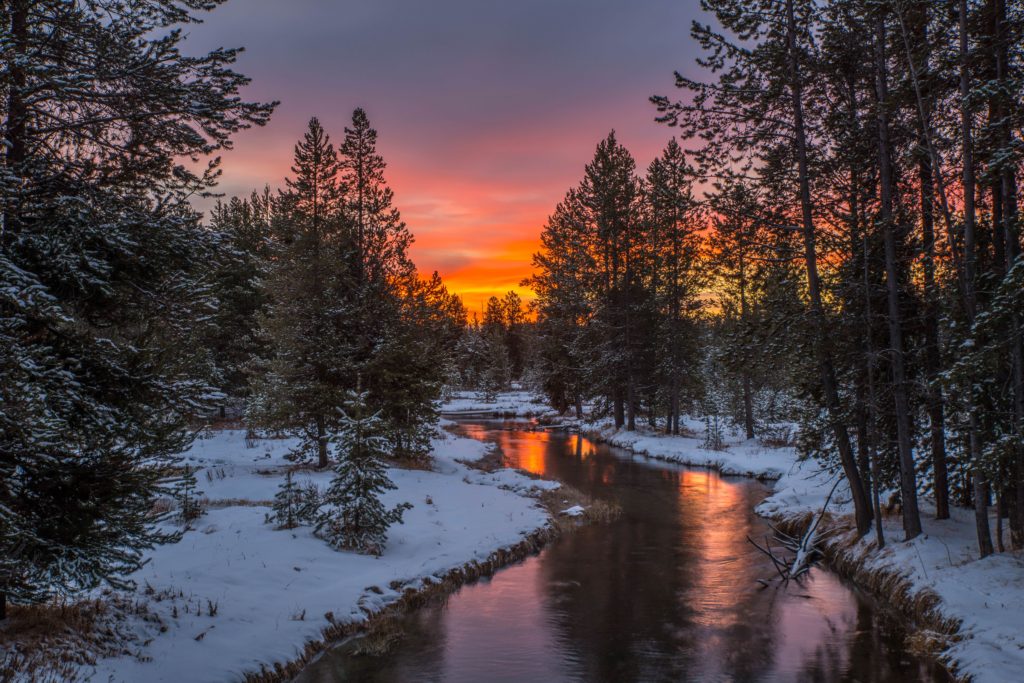The Daily Escape:

Maroon Bells, CO in winter – photo by Glenn Randall
America’s forgotten masses used the ballot box in 2016 to ram home a message to their betters. The message was that we shouldn’t ignore the places that don’t matter, those places that once had middle class jobs, and now have few options. The Trump election was one way to signal all was not well in the America’s decaying small towns.
We long ago retreated from the idea that the central government has a responsibility to look after the lagging places. It isn’t an invisible, unstoppable force that directs all the wealth generation to cities: It’s a system of deliberate centralization, by individuals who control capital, to concentrate productive efficiency and thus, wealth. The left-behinds are on their own.
The reality is that regional or town regeneration is very hard, once the original reason for the town’s existence is lost. Places that don’t matter have to find ways to build wealth locally, and then keep that money local. Locally produced goods and services keep regions alive.
Most solutions are based on the usual arm waving that says: “let them have training” or, “they really need to move where the jobs are”. These ideas have largely failed. Figuring out how to revive these communities requires better policies.
The revenge of the places that don’t matter is the rise of local populism, the increasing opioid use, and declining longevity. The stakes are high, but maximizing the development potential of each town has got to be the answer.
Here is one solution. The WaPo has a long read about how a liberal DC entrepreneur set out to help West Virginians. And for a very long time, Joe Kapp’s help was refused. He was the object of a vicious online campaign, targeted by homophobia, and maligned as a carpetbagger.
When Kapp, 47, an entrepreneur decamped to a West Virginia cabin in 2012 with his partner, he’d come to take a sabbatical. The town is Wardensville, pop. 256. From WaPo:
Those who do work locally gravitate toward poultry processing, furniture manufacturing and agriculture, but the numbers aren’t good. In 2015, the unemployment rate…was 7.5%, compared with 6.7% statewide and 5.3% nationally. The per capita income…was just under $28,000 a year, compared with about $37,000 for the state, and $48,000 nationwide.
The basics are lacking. The area doesn’t have Internet. Kapp says:
You’ve got kids doing their homework in McDonald’s parking lots. People in most of the country just have no idea.
And even community college enrollments suffer. Only 10% of West Virginia high school students enroll in community college, compared to 50% nationwide.
Kapp soon befriended the president at the local community college. From there, it wasn’t long before he was helping the college launch an innovative project, the Institute for Rural Entrepreneurship and Economic Development (IREED), aimed at helping to diversify the regional economy.
Kapp initially failed to gain traction, but things have gradually turned around. He thinks this demographic has more potential than the coastal elites give them credit for. He is certain that by harnessing local knowledge, like agriculture, they can start businesses, and put their own people back to work.
Every town wants its own Amazon, but in rural communities, that’s not an option. They need to create an ecosystem that promotes a small-business culture and entrepreneurship. So Kapp’s assistance in establishing the IREED with the community college got the idea off the ground. No community college in the state had anything of the kind.
The goal of the IREED is to help the local agricultural community think of itself as entrepreneurial.
He is developing a program that will allow community colleges to offer low- or no-interest micro-loans, around $5,000, to aspiring entrepreneurs. These individuals would then take entrepreneurship and business-development courses at the lending college. Kapp:
A bank might say, ‘This guy’s too risky,’ But a community college can say, ‘I know this guy. We work with him. I am vetting and validating his ability to be able to pay back the loan.’
In other words, it’s development banking on a community level. Today, most community banks mainly fund real estate, and they still follow the model where the borrower needs to pledge collateral to get the loan. In a world where services are the business’s primary asset, collateral has no meaning.
So the micro-loans by schools may be a perfect first step to bootstrapping these persistently poor towns.
This is a tentative step. It may not be scalable, but if we are looking for the greatest “social impact indicators”, it is the degree to which people feel secure economically, and safe in their community.
Always has been, always will be.
(The concept of this column, although not the solutions, is taken from “Revenge of the Places That Don’t Matter” by Andrés Rodríguez-Pose, Professor of Economic Geography, London School of Economics. Originally published at VoxEU)

